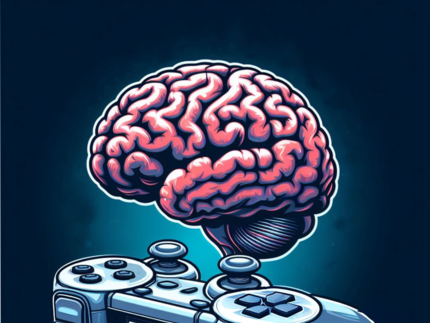Game-based Learning (Serious Games / Educational Video Games)
Digital learning games represent an important sub-area of learning with media. The research at the chair pursues the approach of experimentally varying individual facets of digital learning games or their embedding in the learning process. Through the controlled recording of the resulting effects, generalizable design recommendations and deeper insights into the underlying mechanisms of action are gained. These are necessary to expand the state of research substantially. Meta-analytical studies show that this approach is still too rarely pursued in educational game research. This is flanked by theory-generating work to close gaps in basic research.
Innovative Tools for Learning
Increasingly complex media content can be created by teachers or students alike using numerous low-threshold design tools. In addition, the availability and number of these tools are increasing rapidly. Therefore, the research field also includes investigating the potential and challenges these educational media entail. Furthermore, it is essential to identify boundary conditions for success and the required basic competencies. For this purpose, meta-studies and reviews are published. For example, review articles on specific tools (e.g., Minecraft) or technologies (e.g., photogrammetry) systematize the state of knowledge, applicability, and possible research or practical questions. In addition, surveys are used to investigate further the benefits of individual media in specific settings (e.g., the positive effects of social video games during the Corona pandemic). Experimental and intervention studies increasingly complement this approach.
Media Usage
Students' media use behavior is relevant to the learning context and touches many other areas of the users' lives. The professorship is concerned with selected types of media (e.g., video games) and their specific connections with individual variables (e.g., feelings of loneliness). This research has gained enormous importance, especially due to the effects of the COVID-19 pandemic. However, robust information is still scarce, although it is essential for the future of Media education.
360° videos and 360° multimedia learning environments
The possibility of recording 360° videos and arranging them together with text and image material in multimedia environments generates additional, innovative opportunities for learners. On the one hand, these environments are characterized by the 360° view of content and on the other hand by the fact that they can be viewed immersively using an HMD display (VR glasses). This raises new questions about the design and use of these multimedia environments.
The professorship aims to investigate established design principles in the context of 360° learning environments as well as the possibilities of using 360° learning environments in the classroom.
Virtual Reality and Climate Change Action
Immersive Virtual Reality (VR) applications that want to contribute to the environmental, economic, or social dimension of sustainable development must initiate cognitive, social-emotional or behavioural changes in people in order to reflect their own impact on the world and to make responsible, sustainable decisions in real and virtual environments. In this context, empirical educational and media research in particular has a crucial role in fostering competencies in teaching settings using immersive VR applications. The research field includes both the instructional design and evaluation of immersive VR applications, especially cross-sectional and longitudinal studies to investigate cognitive, affective and behavioural learning goals in the context of Education for Sustainable Development, as well as the didactic embedding (orchestration) in classroom settings to promote subject-specific competences.
Social Media and Social Learning
Social media have become an essential part of our everyday lives. Their specific affordances are fundamentally changing social interaction and the way we communicate. It is therefore essential to research the effects on social development (e.g. empathy skills), especially of young people. However, previous research on social media has not yet produced any clear results and also faces methodological challenges when it comes to operationalizing social media use.
Artificial intelligence in the context of feedback & learning
The topic of artificial intelligence has experienced a boom in the educational context since the release of ChatGPT in Nov. 2022. More and more powerful generative AI models are being released every month, opening up ever more diverse possibilities. These AI models promise great potential, but also harbour whole new challenges for all those involved in the educational process. The research field deals with the question of how these potentials can be utilised effectively and advantageously in the context of feedback & learning while at the same time adequately addressing the challenges. To this end, generative AI tools and chatbots are being developed and trialled with pupils.







